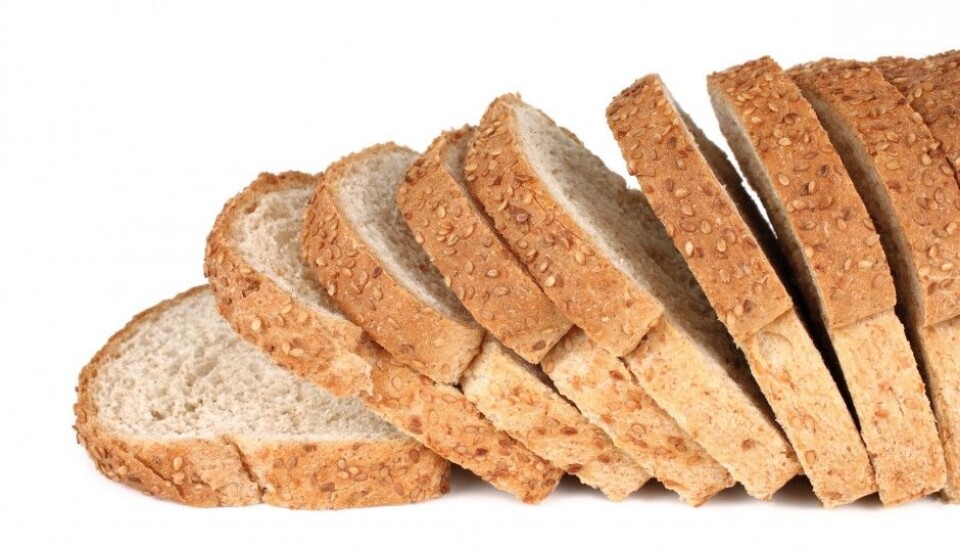
Are we growing overweight from baker’s yeast?
The type of yeast that is used to leaven bread is also used to fatten animals. A new study points toward a possible link between human obesity and yeast.
Denne artikkelen er over ti år gammel og kan inneholde utdatert informasjon.
Researchers at St. Olavs Hospital and the Norwegian University of Science and Technology in Trondheim report indications that remain to be investigated regarding a link between obesity and baker’s yeast.
The researchers found that antigens – substances which stimulate production of antibodies – reacting to baker’s yeast were much more prevalent among obese persons who participated in their study than among the normal weight control group.
But only 58 persons took part in the study and 40 of these were obese, while 18 had normal BMIs.
Over a third of the obese persons were found to have elevated levels of yeast antigens, compared to just five percent in the control group.

“We measured antigens reacting to baker’s yeast because this is an indirect way of determining the presence of yeast,” explains Saideh Salamati, one of the researchers behind the study.
The group of obese persons with the yeast antigen also had tended to have high blood pressure. None of the obese persons in the study had other diseases.
Whetting the appetite
Components in the cell wall of yeast can raise appetites, explains Salamati. Baker’s yeast also produces B vitamins and a number of enzymes which can increase the body’s utilisation of food.
The cell wall of baker’s yeast can also counteract bacteria and have an impact on the body’s immune defence.
Raising animal weight
Salamati got the idea for the study when attending a conference in France on the microorganisms in the digestive tract.
She found that the livestock fodder industry in some EU countries uses baker’s yeast to prevent weight loss among animals when they are being made accustomed to solid foods.
“I thought that if yeast can raise the weight of animals like pigs, cattle and fish, the same could be occurring in us as well if we consume large amounts a day in the form of yeast in bread,” says Salamati.
Several other recent studies have shown a clear link between intestinal microflora and obesity. So far, however, these have focused mainly on bacteria.
“Fewer have looked at other microorganisms, such as fungi,” says Salamati.
Intriguing
Obesity specialist Jøran Hjelmesæth says the theory of a prospective connection between yeast and obesity is intriguing. He is head of the Morbid Obesity Centre at Vestfold Hospital Trust in Tønsberg, Norway.
“The significance of intestinal flora is a hot topic these days,” he says. It is known that fat and skinny people have different intestinal flora.
He finds it intriguing that this possible role of yeast is making a novel appearance in the limelight.
“The theory is well founded and very original. But the basis of the material is limited and the study doesn’t show any causal connection between obesity and yeast,” says Hjelmesæth.
He asserts that it demonstrates nothing beyond that more obese persons than normal-weighted persons have yeast in their bodies or that they are might be more prone to react strongly to it.
Hjelmesæth’s own studies have shown that intensive lifestyle changes can yield weight reductions.
Doubts that bread is cause of fatness
Hjelmesæth does not reject the study. However, he stresses that extensive research would be required to prove that yeast raises the risk of human obesity.
“This doesn’t need to mean more than that people who are fat eat more bread, or more of all foods,” says the professor.
“Nor are there scientific grounds for saying we get fatter from eating bread. On the contrary, lots of research shows that wholegrain products, including breads, have a preventive effect regarding obesity as well as chronic illnesses.”
Too much yeast in the heaviest
The authors of the study are the first to admit that there finding is based on a small number of test subjects. Salamati thinks it hard to say why the obese persons had more yeast antigens in their bodies.
“But we see that the largest patients reacted to yeast more than the persons of normal weight. It would be hard to say whether they have too much yeast in their bodies or whether their immune defence systems have started to react to yeast because they consume more food,” she says.
Yeast replaced antibiotics
The use of yeast in animal feeds started out as an alternative to the low-dosage antibiotics which the fodder industry was overusing. Antibiotics were added to feeds to obtain a more efficient intake of nutrients and speedier weight growth. In the USA antibiotics are still commonly used in animal feeds.
In 2006 the use of weight-boosting antibiotics was banned in the EU because of the danger of transferring multi-resistant bacteria from animals to humans. So in Europe weight gain in animals is being increased with baker’s yeast, among other things.
Breaking down foods better
Salamati points out that baker’s yeast is constantly being improved to amplify its leavening qualities and a side effect is that it becomes a stronger microorganism which can generate more enzymes that break down foods better.
“Industrial produced bread yeast can decompose fibre such as sugar. We thing we are eating healthily but it becomes unhealthy because more of the food is being digested,” says Salamati to the journal Dagens Medisin.
In case you were wondering: Saideh Salamati does not eat bread.
“I stopped a year ago,” she says.
Translated by: Glenn Ostling






























